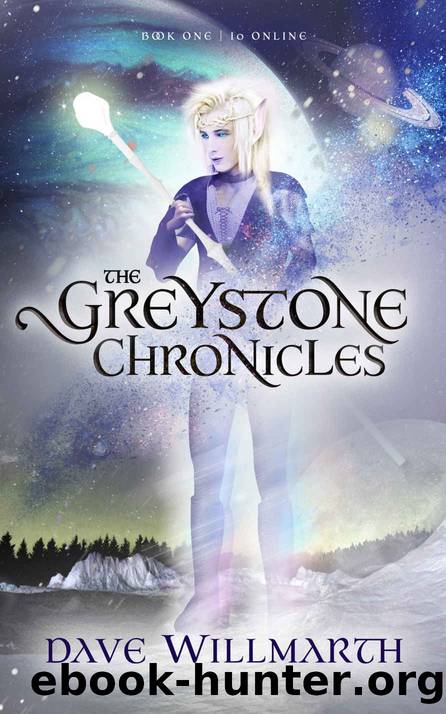Io Online by Dave Willmarth

Author:Dave Willmarth [Willmarth, Dave]
Language: eng
Format: epub
Publisher: UNKNOWN
Published: 2017-10-20T23:00:00+00:00
So the founders of Jupiter Technologies elected to eliminate the need for a black market in Europa. They created an in-game auction house that included a real-world component tied to the Europa Online website. So players could place a piece of epic loot up for auction in game, and it could be seen and bid upon by players in game, or in the real world. There was a straight exchange rate â 1 US Dollar equaled 1 gold, and 1 platinum was 1,000 dollars. Players had the choice of the auction proceeds being paid in either game gold or real life currency. This also reduced the annoyance of gold farming bots that took up server space, and physical space in the game. Because while there was no way for a player to use real dollars to purchase massive amounts of game gold, wealthy players would have been tempted to establish a currency black market that would allow them to invest real world cash in-game to purchase property, for example. But with the dual auction house, a wealthy player could simply put something simple up for auction, say a bundle of low level herbs like milkweed. Then arrange for someone else to bid a ridiculous million gold for it. Several forward-thinking banks had in fact created a corporate character account just to accommodate these transfers for their clients. This system had an added advantage for Jupiter Techâs bottom line, thanks to some quick thinking by their lead accountant. The auction house had been designed, just like nearly all the games that came before, to charge a fee for each transaction. This had been set at 5% of the transaction amount. The original intent had been to âput some cash back into the economy of the gameâ. Which translated into âpaying staff to monitor and maintain the auction house coding and websiteâ. This percentage was set in contemplation of only occasional use by each player, buying and selling crafting materials or the occasional high end gear. However, with the unexpected growth of the game to hundreds of millions of players, and the increasing reliance upon the game for real world income, the auction house had become busier than even the wildest projections. Hence the meeting requested by the lead accountant, Seshat (Her actual name was Miriam, but everyone on staff had chosen, or had been given, a mythological name for themselves. Seshat was an Egyptian goddess of numbers and writing). She had posted a series of historic charts showing transaction levels, projection charts for the same, incomes from the fees, costs for maintenance, etc. The three founders all followed along with limited interest, as they had all been peripherally aware of these numbers already. And when she was finished with her charts, Richard said as much. âWeâre aware of the numbers involved here, Seshat. I assume you have something else for us?â
Download
This site does not store any files on its server. We only index and link to content provided by other sites. Please contact the content providers to delete copyright contents if any and email us, we'll remove relevant links or contents immediately.
We Ride Upon Sticks by Quan Barry(34517)
The Secret History by Donna Tartt(19053)
Norse Mythology by Gaiman Neil(13349)
Crooked Kingdom: Book 2 (Six of Crows) by Bardugo Leigh(12311)
The Betrayed by Igor Ljubuncic(11854)
The Betrayed by Matthew Dickerson(11621)
Caraval Series, Book 1 by Stephanie Garber(10252)
Year One by Nora Roberts(9784)
Twilight Siege: A Dark Fantasy Novel (The Fae Games Book 2) by Jill Ramsower(9635)
Oathbringer by Brandon Sanderson(9610)
The Priory of the Orange Tree by Samantha Shannon(9067)
The City of Brass by S. A. Chakraborty(8869)
Red Rising by Pierce Brown(8762)
Confessions of an Ugly Stepsister by Gregory Maguire(7879)
Little Fires Everywhere by Celeste Ng(7184)
Iron Flame by Rebecca Yarros(6896)
This Is How You Lose Her by Junot Diaz(6877)
Shalador's Lady by Anne Bishop(6851)
Storm and Silence by Robert Thier(6834)
